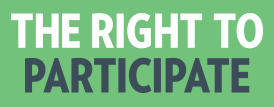
The history of subject abuse within research is well documented prior to 1946 (Pick, Berry, Gilbert, & McCaul, 2013). Since then, stringent measures have been developed and implemented to protect the rights of individuals directly involved in experimentation. However, have participants been excessively shrouded and shielded by these aforementioned measures? Have participants been distanced from the right to participate from high-risk research, even if they consent and understand the dangers? In the following sections, I would like to explore these questions, their implications, as well as how these measures may place barriers against the discovery of meaningful research.

The most relevant concept of ethical research is that of informed consent. Pick et al. (2013) stated that informed consent was essential, and that it is only legally valid and professionally acceptable when based on specific criteria: a participant has the capability to decide whether to take part in the research, the participant has been properly informed and educated, and has not been pressured or coerced to participate. If we follow this logic, it would also allow room for risk as long as the participant followed informed consent. However, contemporary institutional review boards do not allow this to occur.

Shaw (2013) argued that review boards are restricting freedom of choice of participants, and that paternalistic decisions should not be made on a research subject’s behalf. Ethics committees were developed to protect individuals’ welfare because they had no voice or choice. It may be hypocritical then, for the same ethics committee to deny an individual’s freedom of choice, considered a fundamental right of humans and the nucleus of a democratic society. It could be argued that the right to participate in risky research would be no different than the right to skydive, the right to fight for one’s country, or bungee jump. In either case, there are degrees of accepted risk.

Shaw (2013) cited that although review boards are necessary to stop researchers from unjustly recruiting research subjects, there should be room for individuals to exercise their right to engage in research that could be hazardous. Shaw (2013) noted that denying the right to participate in research could potentially deny larger populations cures to diseases. Perhaps the needs of the many could outweigh the needs of the few, as long as the few had the right to choose.

Research poses risks, not dissimilar from daily activities that individuals routinely engage in. A unifying notion is that both situations involve freedom of choice. Considering benefits that could arise from research deemed high risk, perhaps a re-analysis of review board’s processes would be deemed valid.
References
Pick, A., Berry, S., Gilbert, K., & McCaul, J. (2013). Informed consent in clinical research. Nursing Standard, 27(49), 44-47.
Shaw, D. (2013). The right to participate in high-risk research. The Lancet, 383(9921), 1009-1011.
-Michael McIsaac
